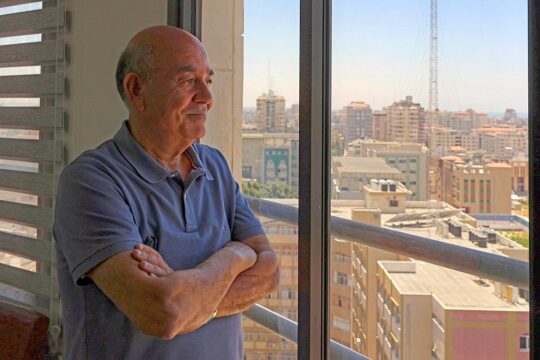Palestinian Islamist movement Hamas elected a hardline member of its armed wing as its new Gaza head on Monday, Hamas officials said.
"Yahya Sinwar was elected to head the Hamas political office in the Gaza Strip", the officials said.
He will succeed Ismail Haniya, who is seen by many observers as the most likely successor to Hamas's current exiled leader Khaled Meshaal.
In September 2015, Sinwar was added to the US terrorism blacklist alongside two other members of Hamas's military wing, the Ezzedine al-Qassam Brigades.
A graduate in Arabic, he was born in the Khan Younis refugee camp in southern Gaza and founded "Majd," one of Hamas's intelligence services.
Arrested by Israel in 1988 for "terrorist activity," Sinwar was sentenced to four life sentences.
He was released in October 2011 under an agreement to exchange more than 1,000 Palestinian prisoners for the release of Gilad Shalit, an Israeli soldier captured five years earlier.
Hamas, which has controlled the Gaza Strip for a decade, has been conducting internal elections for several months.
The process is shrouded in mystery and it is unclear when the other appointments will be announced.
After his release from jail, Sinwar initially made a number of public appearances.
Later, however, he disappeared from public view and was presented in Hamas media as the commander of al-Qassam's elite units.
Influential and close to many Hamas military leaders, Sinwar represents for some observers the hardest line within the Islamist movement.
Washington accuses him of continuing to advocate kidnapping of Israeli soldiers as a bargaining chip for Palestinian prisoners.
Hamas currently claims to have four Israelis in captivity in Gaza, though Israel says the two soldiers among them were killed in the 2014 war.
Kobi Michael, an analyst and former head of the Palestinian Desk at Israel's Ministry for Strategic Affairs, said the appointment would cause alarm among Israeli politicians.
"He represents the most radical and extreme line of Hamas," he told reporters. "Sinwar believes in armed resistance. He doesn't believe in any sort of cooperation with Israel."
Israel has fought three wars with Hamas since 2008, the last of which in 2014.
The Jewish state maintains a crippling blockade on Gaza which it says is necessary to maintain Hamas but which the United Nations says amounts to collective punishment.



